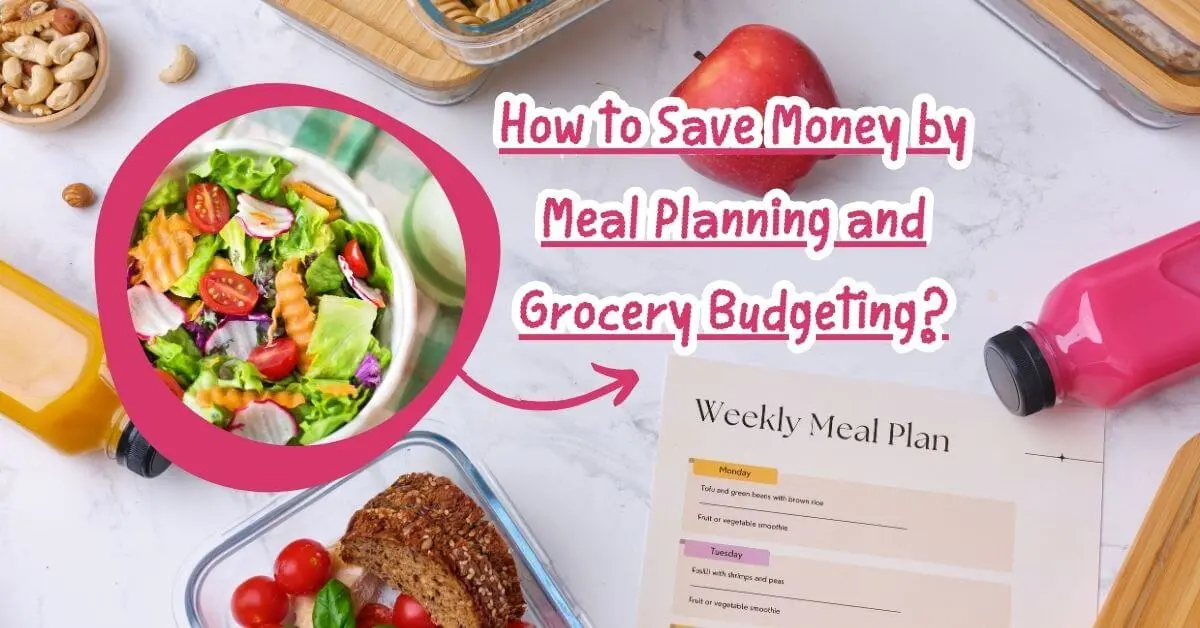
In today’s fast-paced world with Inflation, meal planning and grocery budgeting can be a real game-changer for your wallet. By taking a little time to strategize your meals and expenses, you can save money, reduce food waste, and eat healthier. In this blog, we’ll walk you through the steps to get started, and you’ll find that it’s easier than you might think.
Benefits of Meal Planning
Q: Why should I bother with meal planning?
A: Meal planning helps you save money and time while encouraging healthy eating habits. It’s a win-win!
Meal planning involves thinking ahead about what you’ll eat for the week. When you plan your meals, you’re less likely to order takeout or dine out, which can be pricey. Plus, it cuts down on food waste because you buy only what you need.
Setting a Realistic Budget
Q: How do I set a budget for groceries?
A: Your budget should match your income and expenses. Be realistic!
When setting your grocery budget, consider your monthly income and expenses. Figure out how much you can comfortably allocate to groceries without straining your finances.
Inventory Your Pantry
Q: What’s the point of checking my pantry before shopping?
A: You might already have items you need, saving you money and reducing waste.
Before you make a shopping list, go through your pantry and fridge. You’ll be surprised at how many items you already have. This way, you won’t buy what you don’t need.
Plan Your Meals
Q: How can I plan my meals effectively?
A: Start by listing out breakfast, lunch, dinner, and snacks for the week.
Plan your meals for the entire week. This will help you create a shopping list with the exact ingredients you need, reducing the chances of impulsive purchases.
Create a Shopping List
Q: Why is it essential to stick to my shopping list?
A: Impulse buys can blow your budget. Stick to your list to save money.
Once your meal plan is ready, make a shopping list. Stick to it! Avoid those tempting, but unnecessary, items that can quickly add up.
Buy in Bulk and Use Coupons
Q: How can buying in bulk and using coupons save me money?
A: Buying in bulk and using coupons can lead to significant savings over time. but always make sure to think twice if you require this much bulk quantity or not.
Non-perishable items are often cheaper when purchased in bulk. Keep an eye out for coupons and discounts on items you regularly use.
Opt for Store Brands
Q: Are store-brand products any good?
A: Yes! Store brands are often of good quality and are more budget-friendly.
Store-brand products are usually cheaper than name brands, and in many cases, there’s no noticeable difference in quality.
Seasonal and Sale Items
Q: How can I save by buying seasonal and sale items?
A: Seasonal produce and sale items are often more affordable.
Buying fruits and vegetables that are in season can save you money because they’re abundant and priced lower. Keep an eye out for sales and discounts on various products.
Limit Dining Out
Q: How does reducing dining out help my budget?
A: Eating out can be expensive; cooking at home saves you money.
Dining out is usually more expensive than cooking at home. By reducing restaurant visits, you can keep more money in your pocket.
Cook in Batches
Q: How can cooking in batches help me save money?
A: Cooking in batches saves you time and money in the long run.
Cooking larger portions and freezing leftovers means you’ll have ready-made meals for busy days. It’s both convenient and cost-effective.
Minimize Food Waste
Q: What can I do to reduce food waste?
A: Get creative with leftovers and use them in other meals.
Plan meals that incorporate leftovers, so you’re not throwing away food. For example, use last night’s roasted vegetables in a stir-fry.
Shop Smartly
Q: How can I shop smarter at the grocery store?
A: Choose off-peak hours and compare prices to find the best deals.
Shopping during off-peak hours can save you time and help you avoid crowds. Also, compare prices and choose the most budget-friendly options.
Adjust Your Plan as Needed
Q: Why is flexibility important in meal planning and budgeting?
A: Life can be unpredictable, so it’s essential to adapt to changing circumstances.
Your circumstances may change, so be flexible with your meal plan and budget. Adjust as needed to accommodate unexpected expenses or changes in your schedule.
Track Your Expenses
Q: Why should I keep a record of my grocery spending?
A: Tracking expenses helps you identify areas where you can save more.
Keep a record of your grocery spending. This will allow you to see where your money is going and identify areas where you can cut back.


